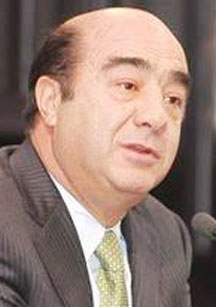MEXICO CITY, (Reuters) – The fracturing of Mexico’s criminal establishment in the government-led crackdown on drug traffickers created between 60 and 80 new cartels, the nation’s attorney general said yesterday, far more than were active six years ago.
Speaking on Mexican radio, Attorney General Jesus Murillo said former President Felipe Calderon’s efforts to stamp out drug trafficking and go after the kingpins had splintered the gangs, spawning many smaller criminal syndicates.
“I would calculate there are between 60 and 80 (new cartels), both medium-sized and small,” Murillo said.
The Sinaloa Cartel of Joaquin “Shorty” Guzman and the Zetas gang are arguably the two biggest organized crime groups in Mexico, though a number of lesser ones are strong in some areas and certain cities like Acapulco are home to many small gangs.
When Calderon, whose six-year term ended on Nov. 30, took office, about 10 cartels were operating in Mexico; four large, and six smaller ones, according to consultancy Risk Evaluation.
Murillo estimated about 70,000 people died in drug-related violence under Calderon, with roughly 9,000 bodies unidentified.
“(Calderon) tried to confront the situation with emergency responses … but this caused things to break down brutally and they got really out of control,” the attorney general said.

Calderon’s forces arrested or killed dozens of drug lords in his struggle against the gangs, but that military-led offensive led to more violence, kidnappings and a spiraling death toll.
Mexico’s new president, Enrique Pena Nieto, won election pledging to restore stability to the country, and on Monday he laid out his plans for reducing the violence.
Pena Nieto belongs to the centrist Institutional Revolutionary Party, or PRI, which ruled Mexico for most of the last century until it was voted out of office in 2000.
Critics say the PRI tolerated the presence of drug gangs in Latin America’s second biggest economy, making deals with them to keep the peace and allowing corruption to take root.
But Murillo said the new government was committed to going after the cartels’ money, and emphatically rejected the idea that there could be any negotiation with them.
“No way,” he said. “That would not make any sense.”
